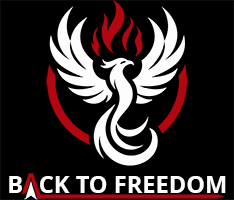The internet is our open square, a place where anyone – from a blogger in Novosibirsk to a student in Nairobi – can freely speak their mind.
But in Europe, new laws and corporate moves set for 2025 are building walls around this freedom, and they could affect you, no matter where you are.
As a Russian I’ve seen how speech can be squeezed, slowly, like a lemon in a press. For the world’s everyday internet users who value free expression, these European changes are not just far-off politics, they could silence your voice online.
Let me lay it out, clear as a winter day in Volgograd, so you understand what’s coming and why it matters to you.
“Chat Control”: Your Private Chats Under Watch
Imagine firing off a message on WhatsApp or Telegram; a joke about politics, a rant about life, or a photo from a party. Now picture an algorithm, cold and nosy, scanning every word and image for transgressions against government policy.
This is the EU’s “Chat Control” plan, first conceived in 2022 before being repeatedly voted down by member states, and brought back to life with more support in 2025.
Posts on X from August 6 say 19 of 27 EU countries support it, with a possible start in October 2025.
It would force apps, even encrypted ones like Signal, to check all messages for “illegal” content, like material about child exploitation.
The goal sounds good, but here’s the rub: scanning “everything” with the weak “Think of the children” excuse kills EVERYONE’s privacy.
If you know your chats are watched, will you freely share your thoughts on government or personal struggles or intimate thoughts? Doubtful; you’ll hold back, like dodging a pothole on a poorly maintained road.
Since apps like Telegram are used worldwide, their makers will likely apply these rules everywhere to avoid EU fines, which could easily hit billions of euros.
So, whether you’re in São Paulo, Seoul, or Samara, your private messages could be under an EU microscope.
This isn’t just Europe’s problem, it’s a global threat to how we talk.
Digital Services Act: Europe’s Rules, Your Silence
The EU’s Digital Services Act (DSA), running since last year, is another storm cloud on the horizon. It demands platforms like X, Meta, and Google delete “illegal” content, like “hate speech” or “disinformation.”
But these terms are slippery, like the ice on a St. Petersburg sidewalk in December.
A U.S. report from July 25, 2025, points to a DSA workshop where a post saying “we need to take back our country” was called “hate speech.”
In one country, it’s just an opinion; in Europe, it might get you banned or prosecuted.
The EU is ramping up, planning to double its DSA team to 200 by late 2025. Platforms face massive fines of up to 6% of their global revenue, which is billions of euros for some, or even a ban from the EU market if they refuse to comply.
To stay safe, they censor fast, not just in Europe but everywhere. A tweet flagged in Berlin could disappear in Boston, even if it’s legal there. This spreads Europe’s tight rules worldwide, even to places like the U.S. where free speech is a cornerstone.
As a Russian I know how control feels, subtle at first, then suffocating.
The DSA could turn the internet, our open steppe, into a gated park.
Media Freedom Act: Protection or Pressure?
On August 8, 2025, the EU launched its Media Freedom Act, meant to guard journalists and diversify news.
Sounds like a warm bowl of borscht, right?
But look closer: it nudges media to follow EU rules on “harmful” content, a term vague and double-tongued as a politician’s promise.
What’s harmful? Nobody spells it out. Newsrooms, wary of trouble, are likely to dodge hot topics, migration, racial replacement, cultural erosion, or government overreach, to keep the EU happy.
Global media like Reuters or BBC reach every corner of the world. If they tweak their stories to fit EU rules, what you read in Delhi, Dublin, or Rostov will lose its edge, its core truth.
Free speech isn’t just about speaking; it’s about hearing the world’s real voice. This act, dressed as a protector, quietly tames what we all hear.
Tech Giants: Following Europe’s Lead
Tech companies aren’t just bystanders. Meta, Google, and X have already bent to the DSA’s demands.
A May 2025 workshop showed the EU expects platforms to rewrite their global rules, banning “hate speech” or “disinformation” everywhere. Meta’s Oversight Board, for example, has flagged truthful posts about the EU’s migration crisis as “hate speech,” even when they’re just sharp opinions, backed by official statistics.
Why do they go along? Money.
EU fines are a sledgehammer, and losing Europe’s market hurts even Big Tech. So, social platforms use algorithms, clumsy as a drunk driver, to delete content fast. Your post about a protest or a cultural jab will be marked “harmful” and gone, not just in Europe but worldwide. Post too much wrongthink and you’ll be deplatformed, or worse, prosecuted.
This over-censorship, already creeping in, will tighten as we get out out of 2025 and into 2026, chaining what you can say and see, wherever you are on Earth.
Why This Hits You
You might think, “I’m not in Europe, so what?”
But the internet is borderless, like the wind over the Caspian Sea. If X or Meta adopts EU rules globally, your posts, videos, or chats will be censored or watched, even in freer places like America.
For those in countries like Russia, where free speech already treads a thin line, this is a double blow. The internet was our escape, a place to speak when streets are quiet. Europe’s laws could make it a public square watched by the KGB, for everyone, everywhere.
What You Can Do
Don’t just shrug. Follow X for real-time updates, search “DSA” or “Chat Control” to see what people are saying.
Check https://adfinternational.org for free speech insights or https://judiciary.house.gov for global impact reports.
Support platforms like X that push back against censorship, and keep posting your thoughts while you still can.
In Russia, we know silence is the first step to losing freedom.
Don’t let it creep in where you live.
A Final Word from Volgograd’s bustling streets
I’ve learned that free speech is fragile, like a glass ornament. Europe’s “Chat Control,” DSA, and Media Freedom Act, with tech giants playing along, will gag our online voices. The internet will feel less like a free river and more like a dammed stream, no matter where you live. Keep your eyes open and your words bold.


One Reply to “Europe’s New Laws Will Silence Our Global Voices: Why You Should Worry”